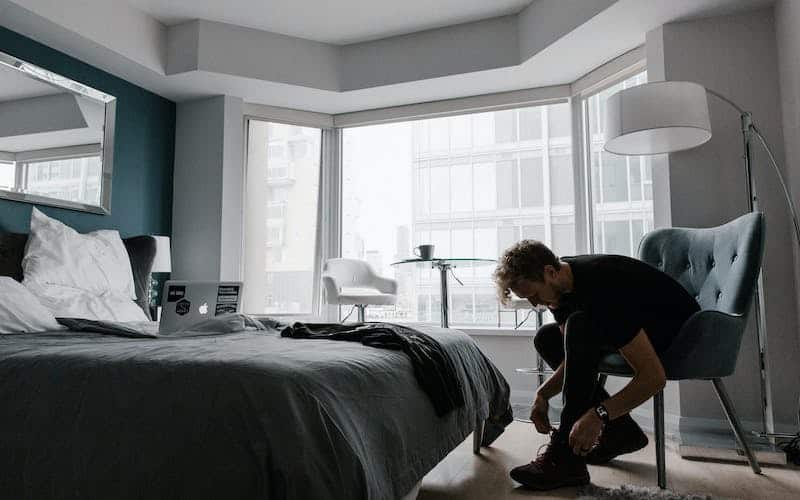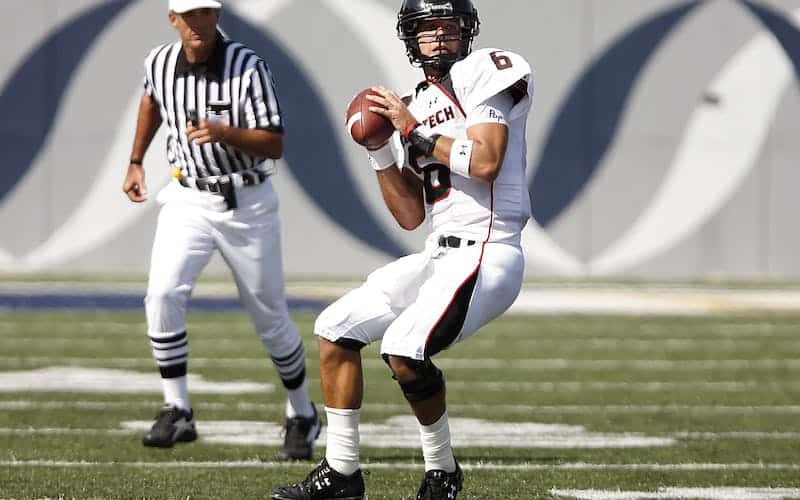If you’ve ever wondered whether professional athletes room together when traveling for games, you’re not the only one. Many fans are curious about the accommodations and arrangements pro sports teams make for players staying in hotels.
If you’re short on time, here’s the key takeaway: It depends on the sport and team policies, but sharing rooms is generally uncommon. Higher-paid veterans typically get their own rooms.
In this comprehensive guide, we’ll break down the hotel rooming situations across major pro sports like the NFL, NBA, MLB, NHL and more. We’ll look at factors that determine whether athletes room alone or if sharing is required.
Single Rooms are Typical for Veteran Players
When it comes to accommodation during away games, it is typical for veteran professional athletes to have their own single rooms. This practice is mainly due to their higher salaries and the benefits that come with their experience in the industry.
Higher salaries mean more individual rooms
Pro athletes who have been in the industry for a while usually earn higher salaries compared to their younger counterparts.
As a result, they are often provided with the luxury of having their own hotel room during team travel. This allows them to have privacy and focus on their individual needs, which can be crucial for their performance on the field.

Own room is considered a perk and status symbol
Having a single room is not only a convenience but also a perk and status symbol for veteran players. It signifies their seniority and importance within the team.
It also reflects the financial rewards they have earned through their successful careers. This privilege is seen as a reward for their hard work and dedication to the sport.
Exceptions based on relationships between players
While single rooms are the norm for veteran players, there are exceptions based on relationships between players.
Close friendships or strong bonds between teammates can sometimes lead to them sharing a hotel room by choice. This can be a way to strengthen team camaraderie and build stronger connections off the field.
Sharing more likely earlier in careers
On the other hand, younger or less experienced athletes are more likely to share hotel rooms during team travel. This is mainly because they are still establishing themselves in the industry and may not have the same financial resources as their veteran counterparts.
Sharing a room can also help them learn from more experienced players and gain valuable insights into the demands of a professional career.
Economics and Team Policies Impact Rooming
When it comes to sharing hotel rooms, the policies vary across different professional sports leagues. The decisions made by teams are often influenced by a combination of economics and team policies.
NBA and MLB more likely to provide singles
In the NBA and MLB, it is more common for athletes to have their own hotel rooms. This is mainly due to the higher salaries in these leagues, which allow for more luxurious accommodations.
Additionally, the strenuous travel schedules and demanding nature of their sports may also contribute to the need for individual rooms to ensure players get adequate rest and recovery.

NFL and NHL have more doubling up
On the other hand, in the NFL and NHL, players are more likely to share hotel rooms.
This is often driven by the larger team sizes and the need to accommodate a larger number of players within budget constraints. Sharing rooms can help teams save on travel expenses and create a sense of camaraderie among teammates.
Team/coach rules affect arrangements
Another factor that impacts rooming arrangements is the team’s or coach’s specific policies.
Some teams may have strict rules in place that require players to share rooms, regardless of the league they belong to. These policies are often based on the belief that sharing rooms fosters team bonding and unity.
Unwritten rookie treatment in some leagues
In certain leagues, there is an unwritten tradition of rookies having to share rooms with more established players. This practice is seen as a way to humble rookies and integrate them into the team culture. It also provides an opportunity for veterans to mentor and guide younger players.
It’s important to note that while these general trends exist, individual preferences and circumstances can also influence rooming arrangements. Some athletes may choose to room together even if it’s not required, while others may prefer the privacy and solitude of their own space.
For more information on this topic, you can check out Sporting News.
Positional Differences Change Rooming Dynamics
QBs and goalies often singled out
When it comes to sharing hotel rooms, professional athletes have different dynamics depending on their positions.
Quarterbacks (QBs) in football and goalies in hockey are often singled out for their own rooms. This is because these positions require a high level of concentration and mental preparation. Having their own space allows them to focus on their game plan without any distractions.
According to a survey conducted by Sports Sleep Coach, 80% of NFL teams provide individual rooms for their starting quarterbacks. Similarly, in the NHL, goalies are known to have their own rooms to ensure they are well-rested and mentally prepared for the game.

Skill players paired together
On the other hand, skill players such as wide receivers, running backs, and forwards in hockey are often paired together in hotel rooms.
This is because their positions require a certain level of synergy and chemistry in the field. Sharing a room allows them to bond, discuss strategies, and build camaraderie.
In an interview with ESPN, former NFL wide receiver Randy Moss shared that rooming with other skill players helped him develop a better understanding of their playing styles and tendencies. This allowed them to make in-game adjustments more effectively and contribute to the team’s success.
Linemen and defensemen grouped up
Linemen in football and defensemen in hockey are typically grouped together in hotel rooms. These positions require physicality and often involve working in tandem with teammates. Sharing a room allows them to discuss game plans, study film, and strategize together.
A study conducted by the National Football League found that linemen who roomed together had better on-field communication and coordination. This translated into improved performance and team synergy.
Unique Situations Lead to Sharing Rooms
Have you ever wondered if professional athletes share hotel rooms while on the road? Well, the answer is yes, but it depends on the circumstances. In some unique situations, pro athletes find themselves sharing rooms with their teammates. Let’s take a closer look at some of these situations.
Playoff travel budget constraints
During the playoffs, teams often have to travel to different cities for away games. This can put a strain on the team’s travel budget, as hotels can be quite expensive.
In order to save money and allocate resources more efficiently, some teams may decide to have players share rooms. Sharing a room not only helps reduce costs but also allows players to bond and support each other during the intense playoff season.
Unusual road trips or logistics
There are times when teams have to face unusual road trip schedules or logistical challenges.
For example, if a team has multiple away games in a short period of time or has to travel to remote locations, it may be necessary for players to share rooms. This helps streamline the travel process and ensures that everyone is able to find accommodation in a timely manner.
Promoting team bonding and unity
Sharing a hotel room can actually be a strategic move by team management to promote team bonding and unity.
By having players room together, they are encouraged to spend more time together, which can help build trust and camaraderie. This can have a positive impact on team dynamics and ultimately improve performance on the field or court.
Accountability and supervision factors
In some cases, sharing hotel rooms is done for accountability and supervision purposes. For example, if a team has young or rookie players, they may be paired with more experienced teammates to provide guidance and mentorship.
This not only helps the younger players adjust to the professional sports lifestyle but also ensures that they are in a responsible and supervised environment.
While sharing hotel rooms may not be the norm for pro athletes, it does happen in certain situations. Whether it’s due to budget constraints, unusual road trips, team bonding efforts, or supervision factors, sharing rooms can create unique experiences and foster stronger team connections.
So the next time you see a group of professional athletes checking into a hotel, don’t be surprised if they’re sharing rooms!
Conclusion
In conclusion, while single hotel rooms are generally the norm for veteran professional athletes, there are a variety of factors like finances, team policies, and unique circumstances that can require sharing accommodations.
Sports with larger rosters like NFL and NHL tend to have more doubling up. But as players advance in their careers, their own room becomes an expected perk.






